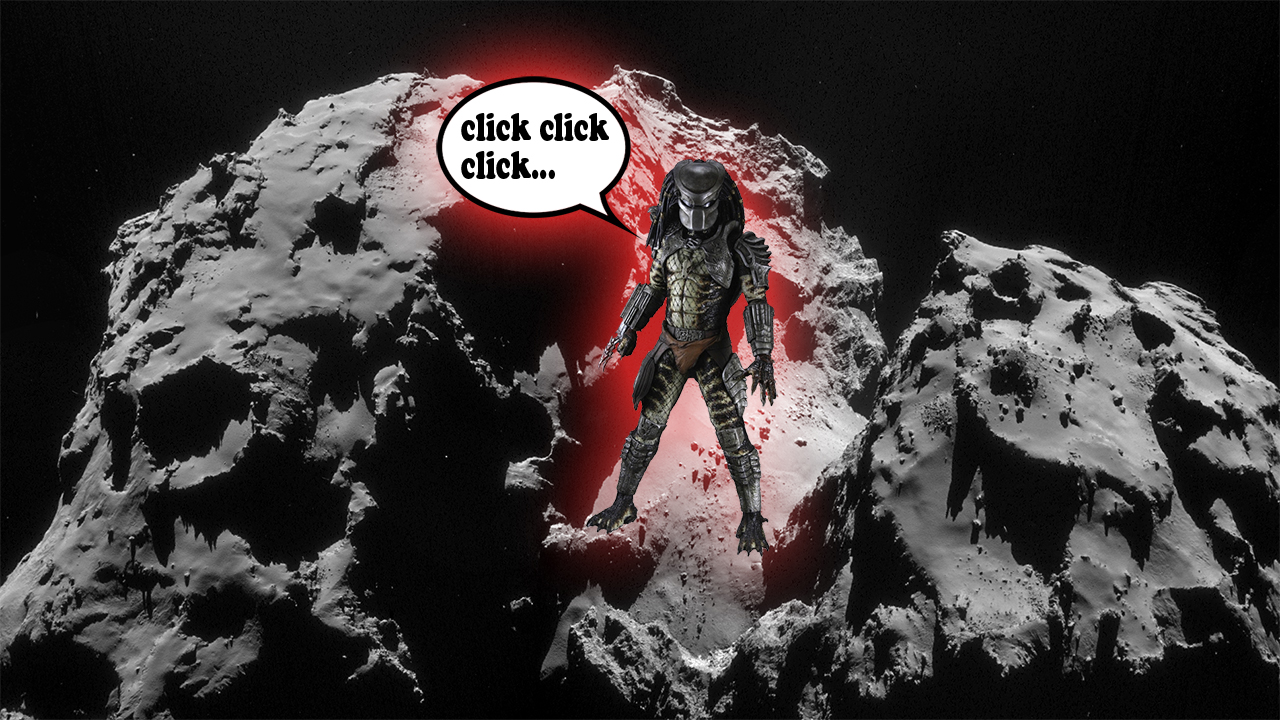Last month, we posted about the breakthrough discovery that the comet known as 67P smells terrible, but little did we know that would be the least interesting thing about the flying ball of ice. The European Space Agency has recorded a “song” being emitted by the comet.
Ahead of its historic landing on the comet — which is remarkable enough in itself — the ESA acknowledged the strange signal in a statement on Tuesday:
This is exciting because it is completely new to us. We did not expect this and we are still working to understand the physics of what is happening
In the recording, the sounds are pitched up by 1,000 times so that they are audible to the human ear. (You can listen to them below). A lot of people keep saying the clicking sounds like the Predator. What makes it extra eerie is that UFO Sightings Daily (USD) reported back in September that there was a signal coming from the comet, but the organization was widely mocked. For that story, USD claimed that its source was a leaker from the ESA. After this announcement, that would make sense.
However, USD also claims that the signal has been generating for 20 years, while the ESA says it first discovered the “song” in August when its spacecraft arrived about 62 miles from the comet. As Discovery reports, the official explanation as of now is:
Through some kind of interaction in the comet’s environment, 67P’s weak magnetic field seems to be oscillating at low frequencies … Rosetta scientists have speculated that the oscillations may be driven by the ionization of neutral particles from the comet’s jets. As they are released into space, they collide with high-energy particles from interplanetary space and become ionized. Because it is electrically charged, the plasma then interacts with the cometary magnetic field, causing oscillations. But to draw any conclusions about this, further work is needed.
Regardless what the sound is, it’s amazing that so many incredible things are happening around this single comet and that we can all have it capture our imagination for a bit.
(Photo: Wikipedia)


